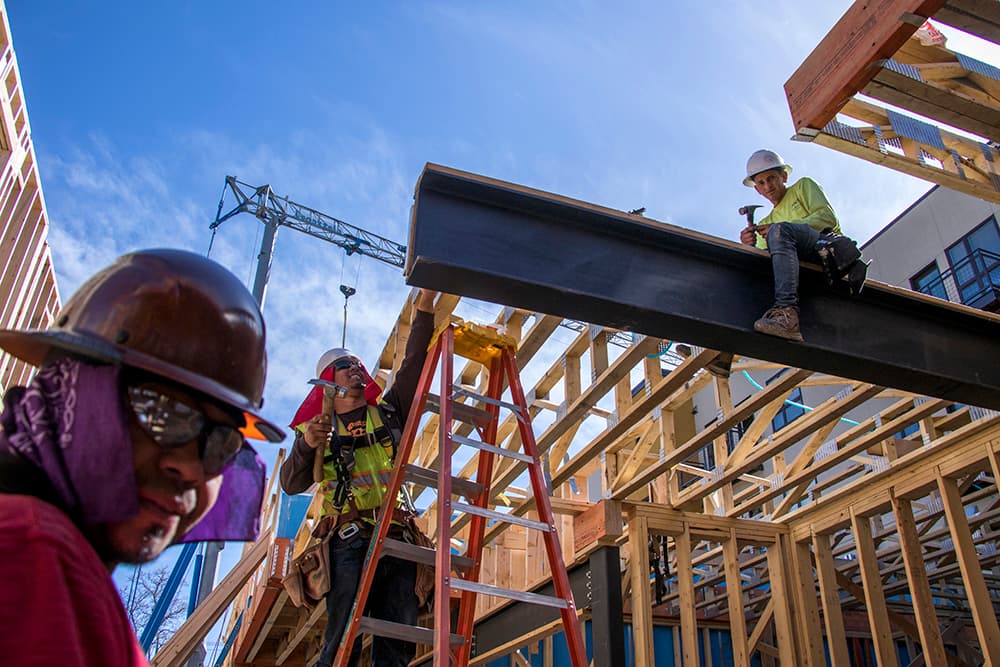Mayor Michael Hancock’s overarching plan to double the city’s affordable housing fund is a go after the Denver City Council voted unanimously Monday to approve bills that support it.
The plan would secure funding for more than 6,000 affordable housing units in part by increasing taxes on retail marijuana and creating a new agreement between the city and Denver Housing Authority, which is separate from the city. The proposal released earlier this month showed the plan is estimated to generate $105 million toward affordable housing in Denver over the next five years.
Councilwoman-at-large Robin Kniech said after the vote that the proposal was a result of "a confluence of ongoing community urgency" and "a sincere response from the (Hancock) administration."
The plan will be developed in partnership with the DHA and help build units over the five-year period. The whole plan was approved through two different bills passed unanimously by the council on Monday.
Office of Economic Development spokesperson Derek Woodbury said in an email the affordable housing fund currently generates about $15 million a year; the new plan will push this to $30 million annually.
Here's where the money's coming from.
According to the plan, the proposal will help build, preserve or obtain property for more affordable housing. It earmarks about half of the new funds to support people experiencing homelessness and very low-income individuals and families.
Right now, Denver's affordable housing fund gets about $7.5 million each year from Denver property taxes.
"With this new plan, that property tax money would be pledged to DHA, who are great partners with the city," said Department of Finance spokesperson Courtney Law, "and are very effective at what they do -- build affordable units across the city."
DHA will turn around and borrow against that stable source of revenue, Law said, which should enable it to raise about $105 million over the first five years. Then the city will raise the marijuana retail sales tax to make up for the money it had been getting from those property taxes.
Under the approved proposal, the city’s special marijuana sales tax will increase from 3.5 to 5.5 percent to help generate $8 million a year. The new tax rate will take effect on Oct. 1.
The city will contribute an additional $7 million from its General Fund to the affordable housing fund in 2019, which Kniech said was her only concern because it has to be approved annually and is therefore less secure than the other revenue.
There are some limitations on how the money can be spent.
The plan includes a new focus on getting small and geographically diverse sites in the city, with limits on amounts available for spending on single areas. Critics have pointed out that this could limit the kind of properties the city can obtain.
City officials are pretty encouraged by the plan, which aligns with the overall five-year plan called "Housing An Inclusive Denver" released earlier this year.
"Our plan goes for deep affordability and this has — this agreement has that baked into it," Chief Housing Officer Britta Fisher said during a committee meeting on August 8. "I'm excited to see this agreement, follow along looking at how we can provide services and housing for those earning the least in our community, and as well as our whole spectrum."
What's next?
Woodbury said the city will need to do some outreach to let recreational marijuana businesses know about the impending sales tax increase.
And the $7 million increase from the General Fund will need to be approved by the City Council as part of the city's budget package this fall. Woodbury said the 2019 budget draft will be released mid-September. The budget is usually approved in November.












